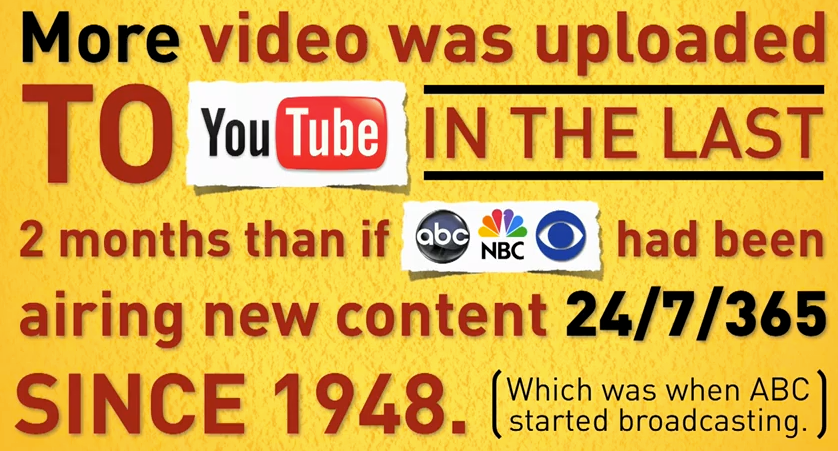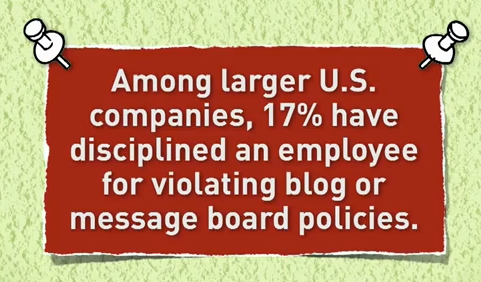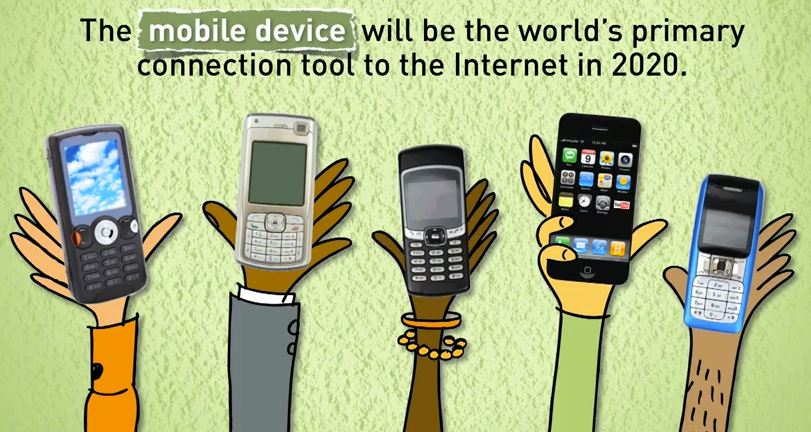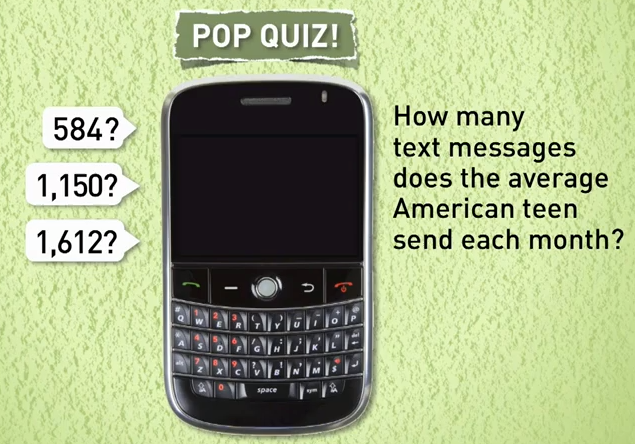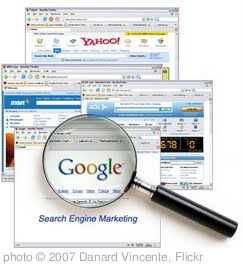_In watching Did You Know 4.0, I selected a the following trends as examples that can impact digital citizenship. They have been categorized into different elements of information policy. Information Literacy: _There is exponential growth in the amount of information available to people. This does not necessarily mean that all information is good. With the growth of digital advertising and the sheer volume of videos on Youtube (some excellent, some not), participants in social media may have a different purpose than some of us might expect. Social media is shifting the evaluation of information from the contributor (as with television networks, or publishers) to the user. It requires that users have skills which allow them to consider the intent and appropriateness of the information they encounter.
Poor judgement:
_In these cases, users disregard policy. It seems that technology has depersonalized interactions, giving people the comfort to conduct themselves in ways they might not do in “real life.” I know many people who download music without paying for it, yet those same people would never walk into a store and steal a CD. In social matters, there are many people who “say” things online, but would never say such things in person. While policy is important, they are most effective when enforced.
Access/Connectedness:
_I believe these two trends are exmplify the human need to be connected. To support this, one infographic stated that 2/3 of Americans sleep with mobile devices at their bedside (guilty). Mobile devices do what our computers did before and so much more, only today it fits in our pocket. The innovation of mobile devices allows people to be social, and access information and knowledge. I believe this innovation and easy access to information allows for learning to move away from solely knowledge and on to more complex problems. Schools must embrace this need for connectedness, and leverage it to support communities in learning. Just like many social media tools, I don’t think they can be entirely regulated. Students will do inappropriate things, and policy must enforce those situations. Policy should support their use as a complement to the current system. xplanevisualthinking. (2009). Did You Know 4.0. [video]. Retrieved from http://www.youtube.com/watch?v=6ILQrUrEWe8 Miller, A. (2012). Your first date with online PR [infographic]. Retrieved from http://www.prmarketing.com/blog/your-first-date-with-online-pr/
What advice from this article will help a PK-grade 12 international school library in China embrace a Library 2.0 ethos? All of the A to Z tips are relevant, but these five (and more) play a very important role in this transition. D-Direction: When addressing virtual access and social networking for libraries, there are many areas to cover (e.g. improved website, new ILS, social media policy). Formal plans need to be established in order to determine a vision and direction for how this library will change. Which changes to the library will be tackled first? A-active: It is necessary to remain active and perseverant when incorporating social networking into this library’s practice. In this particular case, remaining active means actively persuing how to use social media in the library when many of the main sites are blocked in China. The library will need to get creative and carefully examine the current users and their social networking habits in order to utilize social networks effectively with these students. Just jumping into Facebook or Twitter usage might not work in this case. C-Content: However this library decides to move forward with its online presence, the content within the website must be valuable. This also incorporates tips such as B-Blogging, or R-Reference, as all should become a part of the library’s website content. G-Good Reads or L-Library Thing: Treating these two websites equally, either would be very useful in terms of getting the users involved in the reading community. The problem is that both of these sites have had access issues in China. K-Koha: The library has been looking into changing the catalog for a long time, but budget has been an issue. Large commercial systems take a huge part of the budget. Maybe the solution is something open source such as Koha? Some investigation needs to be put into this, which also emphasizes the significance of the H-help element. A great amount of support would be needed from the IT department as well as school administration. Based on:Brown, A., (2010, Jan. 22) A to Z of Social Networking for Libraries [blog entry]. Retrieved from http://socialnetworkinglibrarian.com/2010/01/22/a-to-z-of-social-networking-for-libraries/ __
I know this blog was intended to document my formal learning with CSU, but I'm finding it to be a useful place to write down my reflections. I'm noticing lately that a lot of my reflections are about topics of my own interest that I've encountered through my own reading. I'm getting a little addicted to this, as I am finding the idea of learning through my own network to be pretty inspiring! So today I was reading MindShift, and Audrey Watters addressed the topic of alternatives to formal education. This relates to the topic I wrote about a few days ago, when I was "sidetracked." She states, "Add to that the wealth of educational resources now available online, the possibility for people to learn new skills and to gain new knowledge outside of the traditional college classroom seems to be a compelling argument not to head right back to school." In this blog posting she mentioned several resources, but I checked out the Edupunk's Guide by Anya Kamanetz. "An edupunk is someone who doesn't want to play by the old college rules." This website is filled with tutorials, resources and a free ebook guide for people who want to get an education, but want to do it on their own. She has also created a book called DIY U, and facilitates a self-learning community on P2P U (among other things). The idea of directing your own learning has really become a fascinating topic to me. I'm quite interested in learning more about this idea of self-education because I'm not done. I'm nearing the end of my Masters degree, and I feel like I've just begun. I want to learn more about this topic, as I imagine I can be a valuable resource to colleagues at my school (as the librarian) in guiding them to pursue their own interests. Hmmm, maybe there could even be a job somewhere one day for me in this? I know Anya is going on maternity leave shortly and is looking for someone to take on the community manager work in DIY U. I like the idea, but I'm also strapped with two children and a Masters degree in progress. Anyway, yes, back to self-education. My mind has drifted a little (as you can see) but the exciting thing is that I'm getting a glimpse of yet another job of the future (or maybe a job of today that not many know about) that doesn't yet have any formal training. Professional Development Coordinator? Professional Learning Facilitator? Would this be an alternative for many from formal university education? Would this fulfill requirements to become a teacher, or librarian in the future (probably not if governments have to issue credentials for working in that capacity, like they do in California). Watters made a very good point at the end of her article though. "Despite the financial burden and the time commitment, college does offer an infrastructure - ideally at least - to make this learning happen." This is true for now. However, as organizations like P2PU, Khan Academy, and University of the People continue to appear, surely it's just a matter of time before we have cheaper, more self-directed options that do have an infrastructure (UoP does), and maybe even will have formal recognition. Paul states, "We’re entering an era in which elite education is cheap, but elite credentials are increasingly — for most, prohibitively — expensive." So now that my interest is that I need time to explore these exciting new topics. Where does that come from? OK, back to finishing my paper... (ugh) Kamanetz, A. (2011). The Edupunks's Guide. Available from http://edupunksguide.org/ P2PU: http://p2pu.org/en/ Paul, A. (2011). Salman Khan: The New Andrew Carnegie? Available from http://ideas.time.com/2011/11/16/salman-kahn-the-new-andrew-carnegie/ University of the People: http://www.uopeople.org/ Watters, A. (2011). Considering College During a Recession? Think Again. Available from http://mindshift.kqed.org/2011/11/considering-college-during-a-recession-think-again/
I just found a nice simple way to describe today's library. "...libraries are no longer "grocery stores" where students can go to pick up ingredients, but "kitchens," where they have the resources necessary to create a finished product" (Valenza in Ash, 2010).
Ash, K. (2010). School Libraries Seek Relevance Through Virtual Access. Education Week, 29(21),
10-11.
This is an imitation of the Common Craft "in Plain English" videos. Very clever!
So today was meant to be spent working on my paper for my professional placement. I have done so much professional reading recently and have learned so much--the challenge is remembering where the heck I got my information. So, as I write, I'm jumping back into the university library's website searching databases for articles that support the point I want to make. I know, it's a bit backwards, and is not meant to be done that way. Ssshhhh, don't tell anyone. I need the reference for my paper. Anyway, as I'm searching, I encounter an article by Michael Stephens, called the Transparent Library School. He was a keynote speaker at the Learning 2.011 Worldwide Virtual Conference I participated in a month ago, so I read it (one of the many ways I get sidetracked when studying!). In it, he mentions a blog by an MLIS student named Ben Lainhart, who is frustrated about the instructional pedagogy used for his MLIS program. The quote made me laugh. "I do not want to take any more online classes that are exactly the same: sign into BB (BlackBoard), read the 'lecture,' read the articles, make my obligatory posts on the discussion board and occasionally write a paper. How uninspiring!" I could not agree more. Sorry CSU, but many of the courses I've taken so far have been delivered this way. This element of my studies has been disappointing. However, this is not to say that I haven't learned anything. I do the necessary assignments and follow instructions carefully (and frankly, I think I've doing a pretty good job so far too). However, I learn most when I'm off track. The learning that sticks with me most, the stuff that gets me excited about jumping into this job as teacher-librarian has more to do with the professionals in the industry that I have encountered along the way. I enjoy learning from those in the job now, who are doing things that guide rest of us. When I see that, I want to learn too. No, I don't get particularly jazzed about reading about philosophies and practices from a text and making those posts to the discussion forums because I have to. That being said, what is the answer? I am with Ben Lainhart who said: "... I don’t have too many answers yet. All I have is a feeling that things can and should be done differently. The problem is: differently may be something so open-source that it really begins to mean the end of “institutional” education. And I do not think that I have a problem with that." Just to add to that further, I encountered a youtube video of a presentation by Jeff Utecht, who I remember used to be an IT teacher here in China. In this speech, "Community Trumps Content" he talked about the power of communities. "The Revolution will be here when the students figure out they can learn more in their own communities than they can sitting in a seat in the school." I can relate. He then mentions a university called The University of the People which offers degrees for $25 around the world. Maybe this University of the People is what Ben Lainhart is talking about. But then again, I suppose these resources not necessarily academic. I need to get back to that paper, and find that reference. Ugh.Lainhart, B. (2011). Is Online Education Still Stuck in 2001: Some still unformed thoughts . Available from http://benjaminlainhart.com/2011/02/17/is-online-education-still-stuck-in-2001-some-still-unformed-thoughts/ Stephens, M. (2011). The Transparent Library School. Library Journal, 136(9), 46 Utecht, J. (2010). Community Trumps Content. Available from http://www.youtube.com/watch?v=S8djV8slDN0
I was reading a blog, the NeverEnding Search, and found an article about how students are searching online. This blog post gave an overview of an article, "Why Kids Can't Search" (by Clive Thompson) from Wired magazine. It covered a study that revealed students rely heavily on the top search results when using a search engine. In the study, students were asked to find the answers to some questions. For some of the students, there were false ranking orders on the results page. The significance of this article is that the topic of search skills (or lack thereof) has made it into a mainstream technology magazine. It addresses the lack of critical thinking students are using when seeking information. They often do not consider the source, investigate the credentials of the author, or evaluate for purpose or opinion. I think the most important statement made on the article, however, is that "a good education is the true key to effective research" as researchers need to have some background knowledge on the subject if they are going to evaluate the information in it. Could this make a difference to help people understand the need for deliberate instruction in information literacy, and the changing role of the librarian? It helps.
I've been immersing myself in some professional development for the last 24 hours or so by taking part in the Library 2.011 conference. It is a global digital conference held completely online in multiple timezones using Blackboard's Collaborate. I have SO enjoyed the experience thus far. This entry is just to comment about how I'm enjoying the delivery experience. I've learned so much in just one dedicated day. What's great is that this is self guided, so I attend what I want to attend. Many of the presentations are inspirational which leave me with a vision of where librarianship is headed, but as always, the steps in between are still unclear. Other sessions have been more hands on, learning how to use a particular app, for example. I will try to at the very least list the sessions I have attended so far and hope to write something up about them each in a separate entry. The challenge is time, as my kids are asleep, and soon I will inevitably be interrupted. Such is the story of my life as a stay-at-home student/mom. Sandra Hirsch was the opening keynote speaker on New Career Pathways for Information Professionals in a Library 2.0 world. While not so relevant to someone like me who is near the end of my M.Ed. program and specifically going into teacher librarianship, she addressed many of the work areas where people with information management skills can go into. Here is the link to the recorded session. Michael Stephens presented the Hyperlinked Library. Overall he was just so well spoken and well presented. He showcased various "techno" terms to highlight how we are responding to technology. He showcased how some libraries are responding to innovative technology, such as the outright NO, versus those that embrace the technology. He emphasized that we as information professionals and institutions need to modernize, and make the library a center for encouraging conversation. He encouraged social networks as a means of accessing information and library professionals, and keeping the interaction "human." However, he is a fan of their opportunities as personal learning networks, more than anything. I loved how his presentation was so well done, filled with wonderful complimentary and thought provoking images, despite the fact that the technology slowed things down just a bit. Here is the link to his recorded session. I then decided to view a presentation that I missed last night, because it was on so late (in the USA). It was given by Tasha Bergson-Michelson, and so far I think her session was the most practical, useful, and hands-on friendly for me. She basically highlighted different ways we can improve our online searching using major search engines. While there were many specific strategies she used, her main message, in my view, was that we need to think before searching, and search for our answers, not the question. In other words, we need to first decide what we think the perfect result might show us (keywords, table, infographic, etc.?). Again, very very well done. Here's the recorded session. I also attended a workshop on location based gaming using SCVNGR app for creating scavenger hunts in libraries. This was put on by Linda Barron, and while it is just one specific activity, it is an easy and non-threatening way to put your library into an app, and create more innovative practice. Our local school does not use iPhones or iPods as educational tools, but it is an interesting idea. Her recorded session is here. Finally, Helen Partridge spoke about Becoming a Librarian 2.0. She showcased her findings from research, which highlight the key skills and attributes required for librarians today. This very much addressed the philosophical understandings of librarianship. It Emphasized the need for library preservice programs to combine both the knowledge and skills in librarianship programs with awareness of what the role and identity of a librarian is today--a good combination of epistemology and ontology. Her recorded session is here.
One last thought. There was a session I attended that I couldn't bear to stick with. It has become clear to me the need for effective presentation skills, and how even though some people are information professionals, you wouldn't know it from their presentation skills. I suppose it is yet another thing to a
Well, thankfully my kids let me finish these lines of thought!
I've been trying to make more time to read professional blogs in order to stay current and abreast of trends in all things library. I've also been trying to learn from good examples, examining what cutting edge libraries are doing. One element that I've encountered quite often is some element of gaming. Sometimes a library might have a Wii console. Other times, students will come to the library at breaks with their laptops to play games. I'm still trying to get my head around gaming and education, and where the benefits really lie.
I found this graphical display about gaming and education, and thought I'd post it here. I love the graphical presentation of it. As I read the information, I still have so many questions. However, this is such a great overview of the topic!!
|

